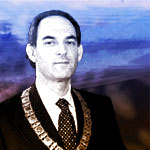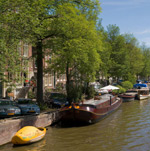
Job Cohen, Mayor of Amsterdam and runner-up in World Mayor 2006

FRONT PAGE
About us

The 2010 results
The 2010 project
The 2010 finalists
Code of Ethics
The World Mayor Prize

The 2008 results
The 2008 project
The 2008 finalists
The World Mayor Award

The 2006 results
Methodology
The 2006 finalists
The World Mayor Award
Dora Bakoyannis congratulates John So
With Mayor of Amsterdam
With Mayor of Harrisburg
With Mayor of Melbourne
With Mayor of St Etienne

Mayor of Amsterdam
Mayor of Antananarivo
Mayor of Augsburg
Mayor of Denver
Mayor of Dubrovnik
Mayor of Harrisburg
Mayor of Makati City
Mayor of Melbourne
Mayor of St Etienne
Mayor of Valencia

On Mayor of Amsterdam
On Mayor of Antananarivo
On Mayor of Augsburg
On Mayor of Bangalore
On Mayor of Belo Horizonte
On Mayor of Denver
On Mayor of Dubrovnik
On Mayor of Harrisburg
On Mayor of Houston
On Mayor of Istanbul
On Mayor of Makati City
On Mayor of Melbourne
On Mayor of Mulhouse
On Mayor of New Orleans
On Mayor of New York
On Mayor of Phnom Penh
On Mayor of Sofia
On Mayor of St Etienne
On Mayor of Taipei
On Mayor of Toronto
On Mayor of Valencia (VE)

By Mayor of Amsterdam
By Mayor of Augsburg
By Mayor of Belo Horizonte
By Mayor of Dubrovnik
By Mayor of Makati City
By Mayor of Melbourne
By Mayor of Valencia

The 2005 results
Contest methodology
List of finalists
Winning mayors write
Mayor Rama writes - Mayor Bakoyannis replies

The 2004 contest
List of all 2004 finalists
Edi Rama wins 2004 award
People ask - Edi Rama replies

Front Page
Site Search
About City Mayors
Job Cohen
Mayor of Amsterdam, The Netherlands
The mayor of the Dutch capital can point to an enviable record in national and city politics, academia and broadcasting, with plaudits from a range of opinion makers for his inclusive approach to politics and city life. Appointed mayor in 2001, he was named one of Time magazine’s ‘European Heroes’ in 2005. In 2006 Job Cohen was runner-up in the annual World Mayor project.
Cohen was born in 1947 in the neighbouring city of Haarlem to liberal Jewish parents. He attended the gymnasium in Haarlem before studying law at the University of Groningen, where he graduated with a law degree in 1971 and married the following year. Aged 20 he joined the PvDA (Labour Party). After graduation, Cohen took up a research position at Leiden University, where he remained until 1981. He then commenced teaching at Maastricht University, becoming professor in 1983 and then rector magnificus in 1991.
In 1993, Cohen was appointed to serve in the third cabinet of Ruud Lubbers, the longest-serving Dutch prime minister (1982-1994) noted for his Thatcherite policies in an otherwise consensual political system. Having served as Deputy Minister for Education, Cohen returned to his academic post after one year, though remaining a member of the Dutch upper house (Eerste Kamer). In 1998 he was appointed to serve as the interim director of the liberal VRPO television station before resigning from the Eerste Kamer to serve in the third cabinet of Labour prime minister Wim Kok as Deputy Minister for Justice with responsibility for immigration. Here Cohen was responsible for overhauling the Netherlands’ immigration law, an area which remains contentious in Dutch politics today.
Cohen resigned from the cabinet at the end of 2000 and was appointed Mayor of Amsterdam in January 2001. Mayors of Dutch cities are appointed by the cabinet in the name of the monarch. One of Cohen’s first notable acts as mayor was to officiate over the first ever same-sex legal marriage, having piloted the legislation required only months earlier while in the Ministry of Justice.
In the Dutch general election of January 2003, following the collapse of the cabinet of Jan Peter Balkenende as a result of the formation of the anti-immigrant Pim Fortuyn List, Cohen became Labour’s candidate for prime minister after leader Wouter Bos’ refusal to serve in the cabinet. In the event, Balkenende narrowly clung on, so Cohen remained mayor.
In 2005, Cohen was named one of Time magazine’s ‘European Heroes’ for his stand on the murder of film-maker Theo van Gogh in an Amsterdam street by an Islamist in November 2004. Cohen led the city’s people in street protests, calling for unity and tolerance. Since the murder, which saw Cohen himself targeted by the assassin, the mayor has sought to bring together the capital’s immigrant communities to ensure dialogue against extremism, both by and directed at Muslim immigrants, in order to maintain its reputation for tolerance and liberal attitudes.
The city of Amsterdam is governed by the mayor (burgemeester), aldermen (wethouders, appointed by the council) and the municipal council (gemeenteraad). In the 2006 municipal elections, a coalition between the Labour Party and the GreenLeft was returned with 27 out of 45 seats. The city is further divided into 15 boroughs (stadsdelen), unlike other Dutch cities. The boroughs were created as part of a decentralisation initiative in the 1980s and carry out most local responsibilities, with the city retaining central oversight for infrastructure and cross-city issues. In 1995 the national government proposed the creation of a city province for Amsterdam, alongside the 12 historic provinces of the Netherlands, and while this was rejected by the city’s voters in a referendum, decentralisation has increased to the lower tier since then.
Cohen is married, with a son and a daughter.

Amsterdam canal
Amsterdam
in modern times
During World War I, the Netherlands remained neutral, but Amsterdam suffered the effects of the war when food became scarce. When working class women started to plunder a ship with army supplies, the military was brought in. Workers joined their wives in the plundering and the soldiers opened fire on them. Six people were killed and almost 100 were wounded.
In 1932 a dike separating the Zuider Zee from the North Sea, the Afsluitdijk, was completed. The Zuider Zee was no more. The new lake behind the dyke was called IJsselmeer. For the first time in its history Amsterdam had no open communication with the sea.
During World War II, German troops occupied the city. More than 100,000 Jews were deported, famously including Anne Frank, and almost completely wiping out the Jewish community. Before the war, Amsterdam was the world's center for the diamond trade. Since this trade was mostly in the hands of Jewish businessmen and craftsmen, the diamond trade essentially disappeared.
The cultural revolution of the 1960s and 1970s made Amsterdam the magisch centrum (magical centre) of Europe. The use of soft drugs was tolerated and this policy made the city a popular destination for hippies. Squatting became widespread. Riots and clashes with the police were frequent. A grim atmosphere took hold of Amsterdam. Anarchist squatters wanted to change the local society by squatting empty buildings and buildings used for other purposes than living. This led to a strong confrontation with contractors, who were aligned with the Dutch Mafia. Amsterdam started the 1980s in an explosive manner. In 1980, while Queen Beatrix's coronation was being held in the New Church on Dam square, protesters outside the church fought with the police in protest against government policies. Their slogan was 'Geen woning, geen kroning' (No house, no coronation). The mayor and city council eventually had to bring in the military to get the situation under control.
During the 1980s the number of foreign immigrants, primarily from Suriname, Turkey and Morocco grew strongly. This led to an exodus of people to the 'growth cities' of Purmerend, Almere and other cities near Amsterdam. However, neighbourhoods like the Pijp and the Jordaan, which had previously been working class, became sought out places of residence for the newly wealthy yuppies and students. Amsterdam that used to be a poor city in the Netherlands turned into an economically rich city thanks to the new economical trend towards a service-economy instead of an industrial economy.
In 1992, an El Al cargo plane crashed in the Bijlmermeer in Amsterdam Zuidoost. This disaster, called the Bijlmerramp, caused the death of at least 43 people.
At the beginning of the millennium social problems such as safety, ethnic discrimination and segregation between religious and social groups began to develop. 45% of the population of Amsterdam has non-Dutch parents. Large social groups are people from Surinam, the Dutch Antilles, Morocco and Turkey. Amsterdam is characterized by its (perceived) social tolerance and diversity. The social tolerance was endangered by the murder of Dutch film-maker Theo van Gogh in November 2, 2004 by a Mohamed Bouyeri, an Islamic fundamentalist. The mayor of Amsterdam, Job Cohen, and his alderman for integration Ahmed Aboutaleb formulated a policy of "keeping things together" which involves social dialogue, tolerance and harsh measures against those who break the law. (Source: Wikipedia)
